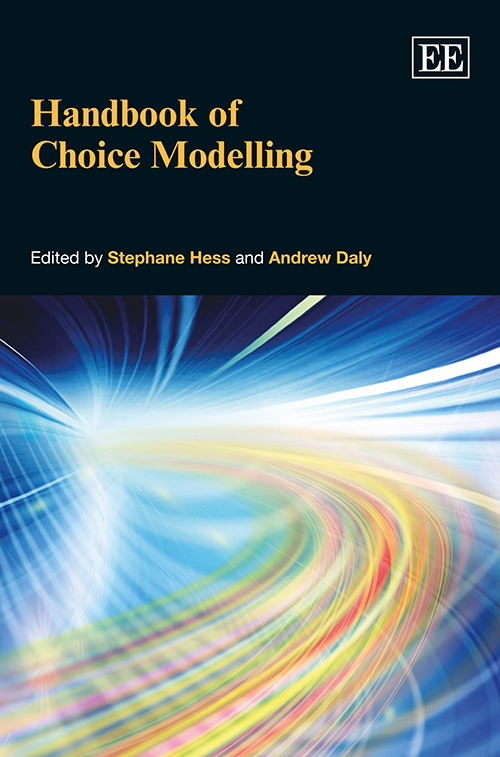
Choice modelling is a specialised area of micro-econometrics that develops and applies mathematical models that represent human decision making. Choice models are used extensively to understand current behaviour and predict future choices in the applied fields of the economic sciences, especially environmental, health, and transport economics. Other application areas include business and marketing. In addition to addressing questions of academic interest, choice modelling informs policy and strategy making in these applied economic disciplines.
This 3-day masterclass – taught over six half-day (evening) sessions – introduces students to choice models, discusses and contrasts the family of available model structures, and covers both estimation on data and the use of models to produce outputs for policy. The course consists of a mix of lectures and discussion sessions covering both theoretical and applied issues.
Stephane Hess is Professor of Choice Modelling and Director of the Choice Modelling Centre at The University of Leeds (UK). Stephane is a globally recognised leader in choice modelling with interests in behavioural models, travel behaviour, health choices, and decision making. His specific academic contributions include developing advanced choice models and empirical contributions across many fields. He is the editor of the Journal of Choice Modelling (the leading international, interdisciplinary journal in choice modelling), the chair of the International Choice Modelling Conference, and co-developer of Apollo (with David Palma, Leeds, UK), a widely used (open-source) estimation software for choice models.
This is a lecture-based masterclass taught in six half-day (evening) sessions over two weeks. The masterclass introduces students to the fundamentals of choice modelling through a series of lectures and discussion sessions.
The masterclass will specifically introduce participants to the family of econometric models that are typically used in choice modelling – both in academic and applied projects. Examples are used throughout the masterclass with application areas including environmental, health, and transport economics.
The masterclass will include a demonstration of the open-source Apollo software for the estimation of choice models. The target audience includes both academic and applied researchers including University researchers and research students, and researchers and policymakers from government agencies and departments.
Session 1:
- Introduction to choice modelling;
- Data for choice modelling (revealed and stated preferences);
- Random utility theory;
- The Multinomial logit model (MNL).
Session 2:
- Estimation theory;
- Introduction to Apollo and MNL in Apollo;
- Specification testing;
- Interpretation of MNL results.
Session 3:
- Models allowing for heightened substitution patterns;
- Nested logit;
- Cross-nested logit;
- Estimation in Apollo and forecasting and elasticities.
Session 4:
- Allowing for heterogeneity in preferences;
- Deterministic and random heterogeneity;
- Mixed Logit;
- Latent Class;
- Advanced model estimation in Apollo.
Session 5:
- Other advanced modelling topics;
- Hybrid choice models;
- Departures from the Random Utility framework.
Session 6:
- Choice modelling in practice;
- Joint estimation on RP and SP data;
- Emerging data sources for choice models;
- Pre- and post-estimation tasks in Apollo.
This is a lecture-based masterclass delivered live online using Zoom in six half-day (evening) sessions.
The masterclass consists of a series of lectures and interactive discussion sessions.
Participants should be willing to participate in these (facilitated) discussion sessions.
Participants should have some familiarity with linear and logistic regression.
There is no requirement for previous experience in choice modelling.
Hess, Stephane and Andrew Daly (eds.) (2013), Choice Modelling: The State-of-the-Art and the State-of-Practice. Cheltenham, UK; Northampton, MA: Edward Elgar Publishers.
